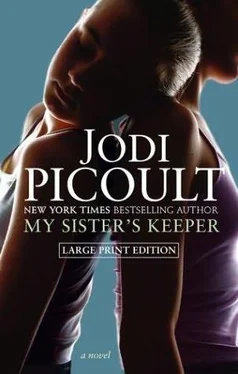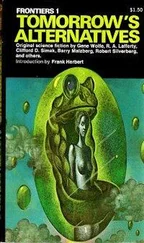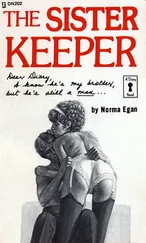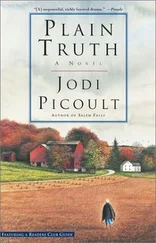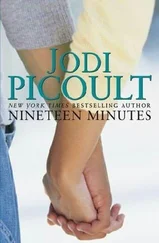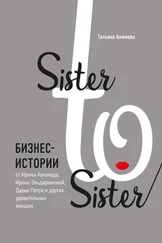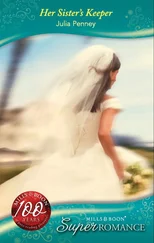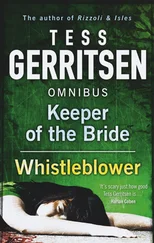He clears his throat. "The answer is that there is no good answer. So as parents, as doctors, as judges, and as a society, we fumble through and make decisions that allow us to sleep at night—because morals are more important than ethics, and love is more important than law."
Judge DeSalvo turns his attention to Anna, who shifts uncomfortably. "Kate doesn't want to die," he says gently, "but she doesn't want to live like this, either. And knowing that, and knowing the law, there's really only one decision I can make. The sole person who should be allowed to make that choice is the very one who lies at the heart of the issue."
I exhale heavily.
"And by that, I don't mean Kate, but Anna."
Beside me, she sucks in her breath. "One of the issues brought up during these past few days has involved whether or not a thirteen-year-old is capable of making choices as weighty as these. I'd argue, though, that age is the least likely variable here for basic understanding. In fact, some of the adults here seem to have forgotten the simplest childhood rule: You don't take something away from someone without asking permission. Anna," he asks, "will you please stand up?"
She looks at me, and I nod, standing up with her. "At this time," Judge DeSalvo says, "I'm going to declare you medically emancipated from your parents. What that means is that even though you will continue to live with them, and even though they can tell you when to go to bed and what TV shows you can't watch and whether you have to finish your broccoli, with regards to any medical treatment, you have the last word." He turns toward Sara. "Mrs. Fitzgerald, Mr. Fitzgerald—I'm going to order you to meet with Anna and her pediatrician and discuss the terms of this verdict so that the doctor understands he needs to deal directly with Anna. And just so that she has additional guidance, should she need it, I'm going to ask Mr. Alexander to assume medical power of attorney for her until age eighteen, so that he may assist her in making some of the more difficult decisions. I'm not in any way suggesting that these decisions should not be made in conjunction with her parents—but I am finding that the final decision will rest with Anna alone." The judge pins his gaze on me. "Mr. Alexander, will you accept this responsibility?"
With the exception of Judge, I have never had to take care of anyone or anything before. And now I will have Julia, and I will have Anna. "I'd be honored," I say, and I smile at her.
"I want those forms signed before you leave the courthouse today," the judge orders. "Good luck, Anna. Stop by every now and then, and let me know how you are."
He bangs his gavel, and we rise as he leaves the courtroom. "Anna," I say, when she remains still and shocked beside me. "You did it."
Julia reaches us first and leans over the gallery railing to hug Anna. "You were very brave." Over Anna's shoulder she grins at me. "And so were you."
But then Anna steps away, and finds herself facing her parents. There is a foot between them, and a universe of time and comfort. It isn't until that moment that I realize I have begun already to think of Anna as older than her biological age, yet here she is unsure and unable to make eye contact. "Hey," Brian says, bridging the gap, pulling his daughter into a rough embrace. "It's okay." And then Sara slips into this huddle, her arms coming around both of them, all their shoulders forming the wide wall of a team that has to reinvent the very game they play.
VISIBILITY SUCKS. The rain, if possible, is coming down even harder. I have this brief vision of it pummeling the car so hard it crunches like an empty Coke can, and just like that it's harder for me to breathe. It takes a second for me to realize that this has nothing to do with the shitty weather or latent claustrophobia, but with the fact that my throat is only half as wide as usual/tears hardening it like an artery, so that everything I do and say involves twice as much work.
I have been medically emancipated for a whole half hour now. Campbell says the rain is a blessing, it's kept the reporters away. Maybe they will find me at the hospital and maybe they won't, but by then I will be with my family and it won't really matter. My parents left before us; we had to fill out the stupid paperwork. Campbell offered to drop me off when we were through, which is nice considering I know he wants nothing more than to hook up with Julia, which they seem to think is some tremendous mystery, but so isn't. I wonder what Judge does, when it's the two of them. I wonder if he feels left out.
"Campbell?" I ask, out of nowhere. "What do you think I should do?"
He doesn't pretend to not know what I'm talking about. "I just fought very hard at a trial for your right to choose, so I'm not going to tell you what I think."
"Great," I say, settling deep into my seat. "I don't even know who I really am."
"I know who you are. You're the premier doorknob caddy in all of Providence Plantations. You've got a wise mouth, and you pick the crackers out of the Chex Mix, and you hate math and…"
It's kind of cool, watching Campbell try to fill in all the blanks.
"… you like boys?" he finishes, but that one's a question.
"Some of them are okay," I admit, "but they probably all grow up to be like you."
He smiles. "God forbid."
"What are you going to do next?"
Campbell shrugs. "I may actually have to take on a paying case."
"So you can continue to support Julia in the style to which she's accustomed?"
"Yeah," he laughs. "Something like that."
It gets quiet for a moment, so all I can hear is the squelch of the windshield wipers. I slip my hands under my thighs, sit on them. "What you said at the trial… do you really think I'll be amazing in ten years?"
"Why, Anna Fitzgerald, are you fishing for compliments?"
"Forget I said anything."
He glances at me. "Yes, I do. I imagine you'll be breaking guy's hearts, or painting in Montmartre, or flying fighter jets, or hiking through undiscovered countries." He pauses. "Maybe all of the above."
There was a time when, like Kate, I'd wanted to be a ballerina. But since then I've gone through a thousand different stages: I wanted to be an astronaut. I wanted to be a paleontologist. I wanted to be a backup singer for Aretha Franklin, a member of the Cabinet, a Yellowstone National Park ranger. Now, based on the day, I sometimes want to be a microsurgeon, a poet, a ghost hunter.
Only one thing's a constant. "Ten years from now," I say, "I'd like to be Kate's sister."
MY BEEPER GOES OFF just as Kate starts another course of dialysis. An MVA, two cars, with Pl-a motor vehicle accident with injuries. 'They need me," I tell Sara. 'You'll be okay?"
The ambulance is headed to the corner of Eddy and Fountain, a bad intersection to begin with, rendered worse by this weather. By the time I arrive, the cops have blocked off the area. It's a T-bone: the two vehicles rammed together by sheer force into a conglomerate of twisted steel. The truck made out better; the smaller BMW is literally bent like a smile around its front end. I get out of the car and into the pouring rain, find the first policeman I can. "Three injured," he says. "One's already en route."
I find Red working the Jaws of Life, trying to cut through the driver's side of the second car to get to the victims. "What have you got?" I shout over the sirens.
"First driver went through the windshield," he yells back. "Caesar took her in the ambulance. The second ambulance is on its way. There are two people in here, from what I can see, but both doors are accordions."
"Let me see if I can crawl over the top of the truck." I start to work my way up the slick metal and shattered glass. My foot goes through a hole I couldn't see in the flatbed, and I curse and try to get myself untangled. With careful movements I pull myself into the pleated cab of the truck, maneuver myself forward. The driver must have flown out the windshield over the height of the little BMW; the entire front end of the Ford-150 has plowed through the sports car's passenger side, as if it were made of paper.
Читать дальше
